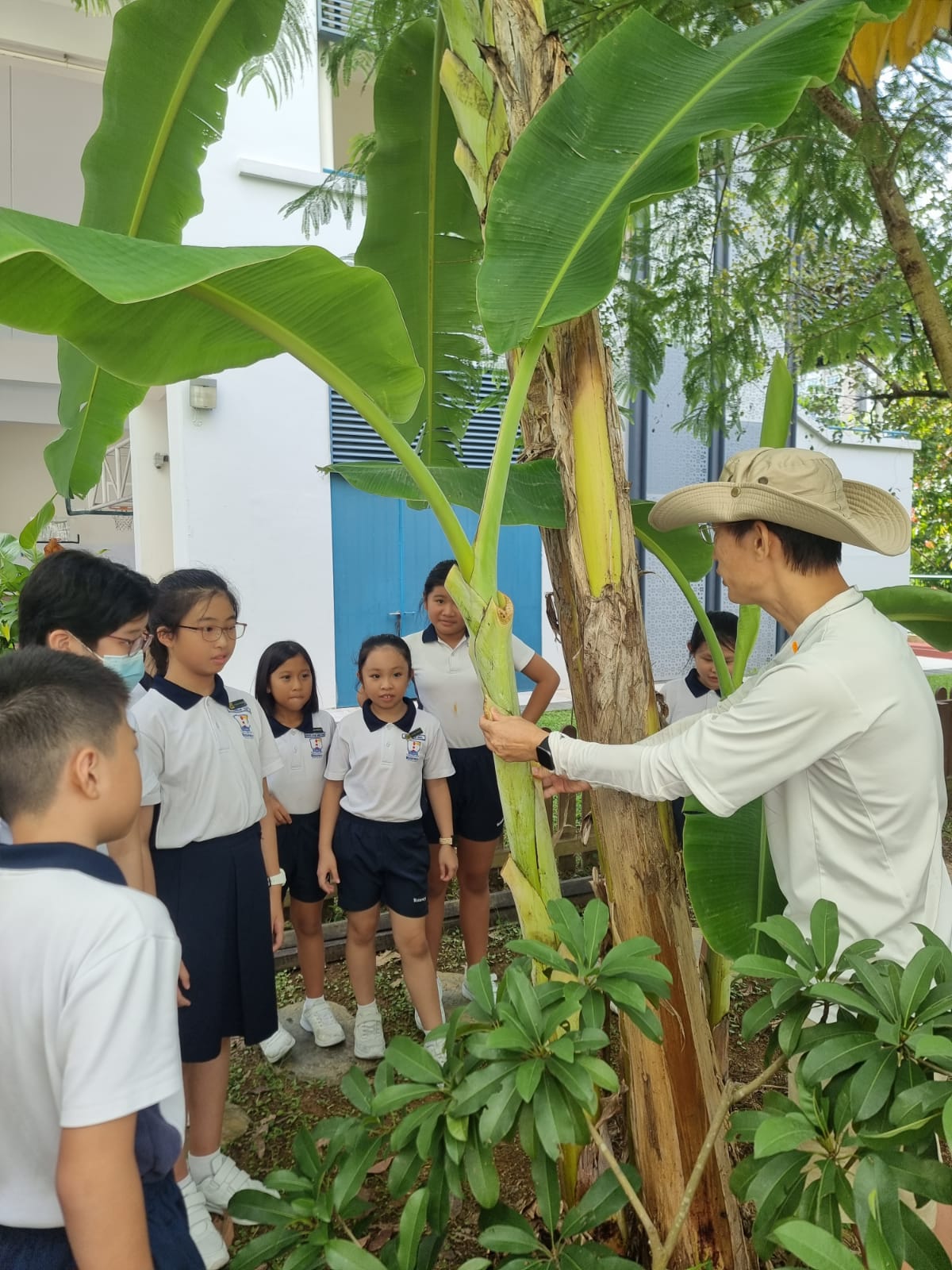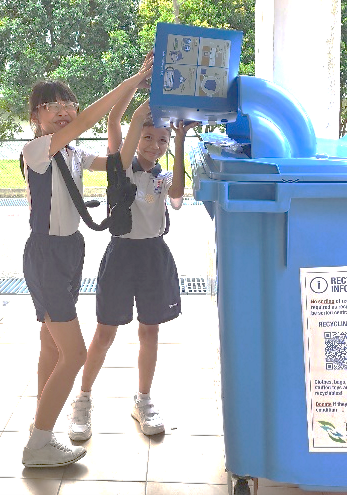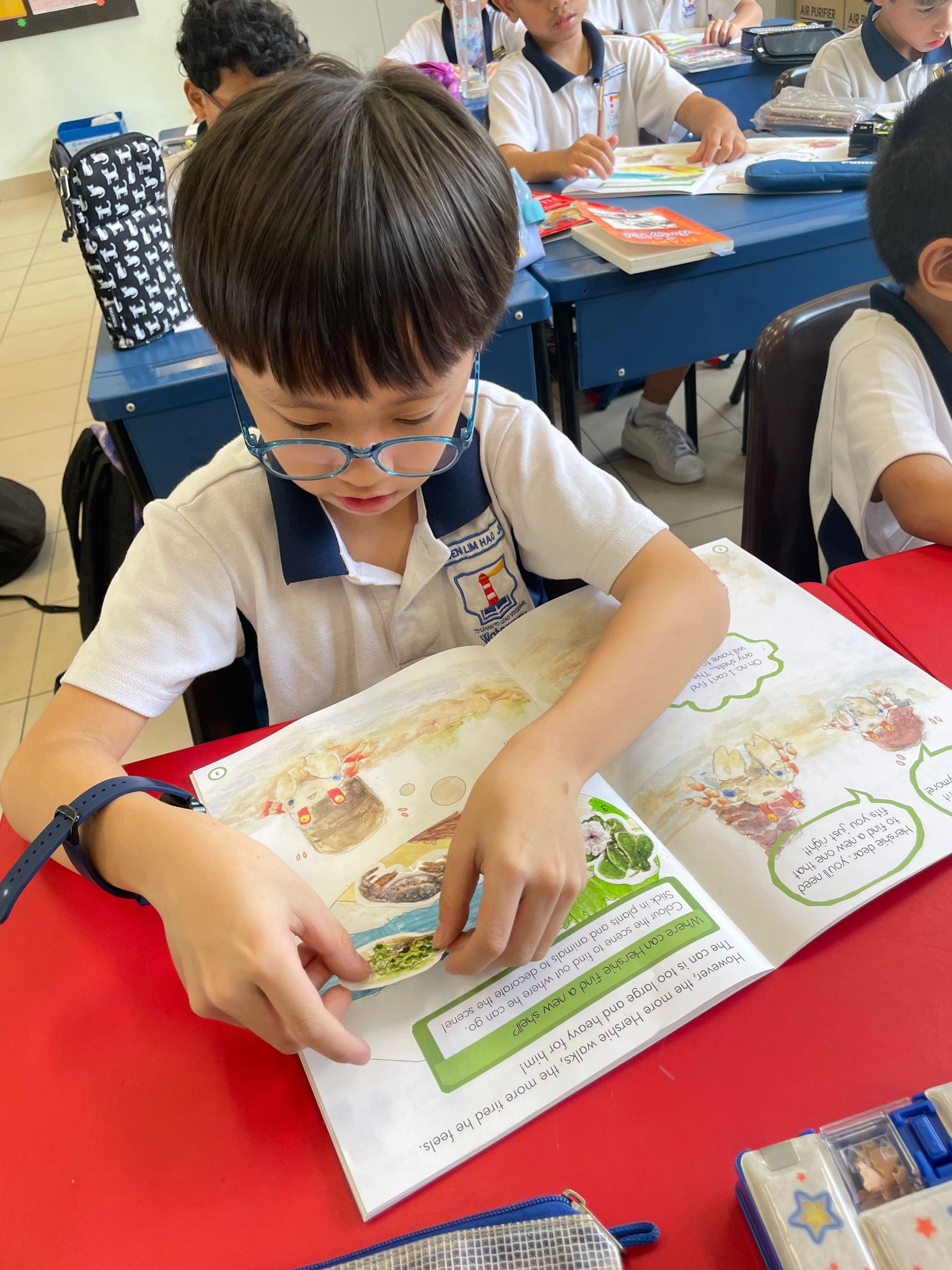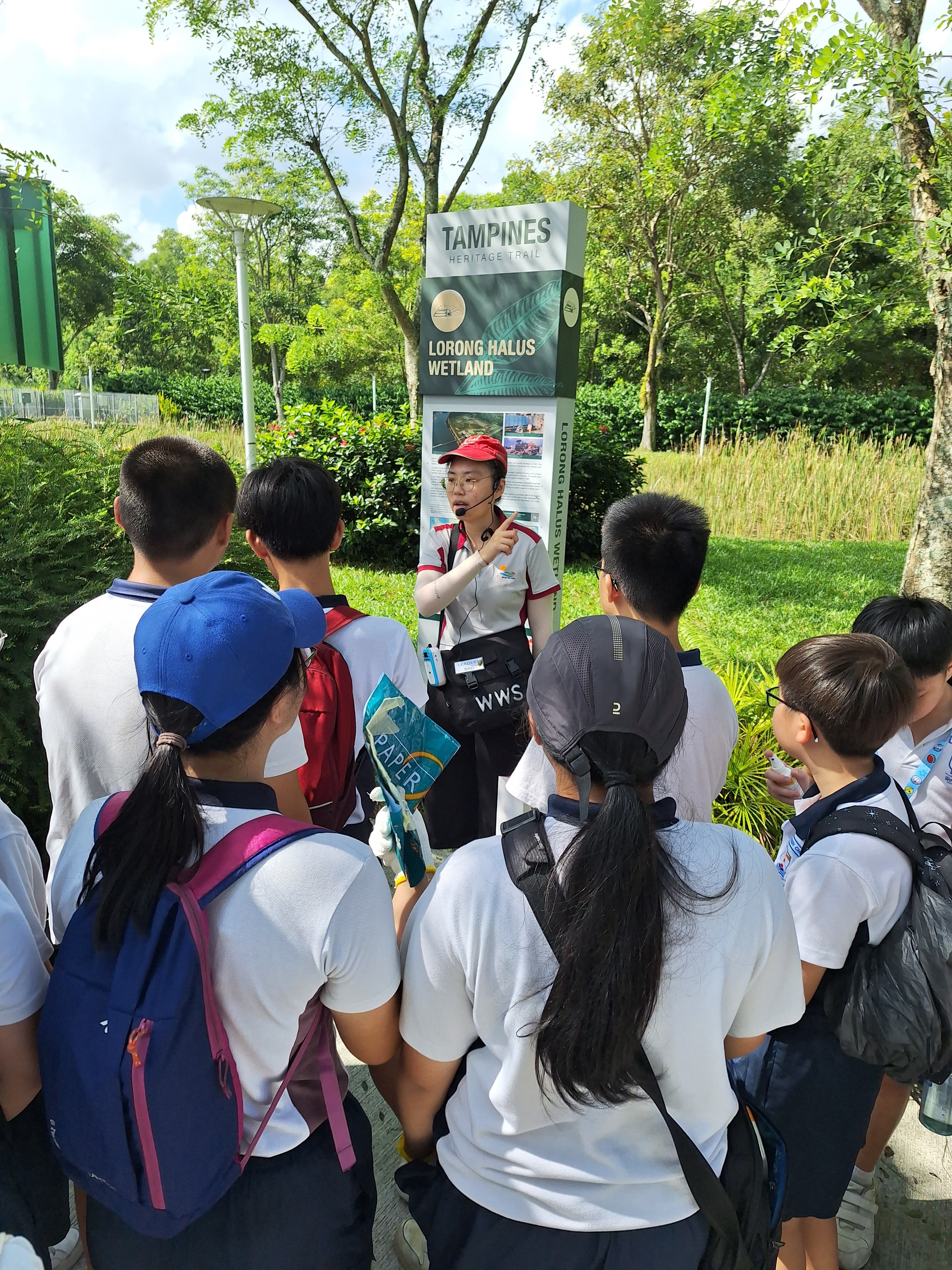Eco Stewardship
Eco Stewardship @ WAPS: Protecting Waterways, Celebrating Biodiversity

Mission
To develop WAPS staff and students to
(1) possess a deep appreciation for nature,
(2) cultivate eco-consciousness, and
(3) take meaningful actions in furthering sustainability in the community.
Key Objectives
At the end of the six-year programme, students will be able to achieve
the following objectives:

Knowledge
1. Recognize how humans rely on the environment
for resources
2. Understand the relationship between people
and the environment
3. Understand how individual actions can impact
the environment around him/her
Skills
4. Develop the 21st Century Competencies of Critical, Adaptive and Inventive Thinking by
being able to
o Evaluate multiple sources and viewpoints to make well-informed,
evidence-based decisions
o Contribute solutions to complex and contemporary environmental
issues
Values
5. Develop qualities of a Concerned Citizen & Active Contributor
o Develop a sense of wonder, appreciation and care for the
environment
o Develop agency for collective actions to promote sustainable
living in the community

Theme & Approach
The mission will be achieved through awareness building, providing platforms
for advocacy and authentic learning experiences.
Eco Stewardship @ WAPS’ theme – Protecting Waterways, Celebrating Biodiversity is
inspired by Punggol Town’s unique agricultural heritage and Waterfront
Eco-Town identity. Building on our town’s heritage and identity, our programme
has a unique focus on water and biodiversity conservation. Through classroom
lessons, school activities and outdoor learning experiences, our students
will learn and be given opportunities to,
1) Conserve and protect water resources
2) Conserve and promote biodiversity
The programme also on the school’s Growth & Benefit Mindset (GBM) programme. It provides platforms for students to develop and practice applying the growth and benefit mindset that they have acquired through GBM lessons.
Besides engaging students in school, the programme seeks to involve all
its stakeholders (i.e. staff, parents and community partners) in developing
and enhancing the 4Cs:
· Curriculum
- Infuse lessons on sustainability into current school curriculum
· Campus
- Enhance campus with sustainability features
· Culture
- Promote and encourage sustainable habits and practices
· Community
- Leverage community partners to provide students with authentic
learning partnership opportunities

The programme adopts a 3-tiered approach to raise awareness, encourage
actions and advocacy.
· Tier 1 focuses on
promoting school-wide approaches to sustainability
· Tier 2 focuses on
level-specific sustainability programmes
· Tier 3 focuses on
developing students ambassadors who will champion our sustainability programmes

